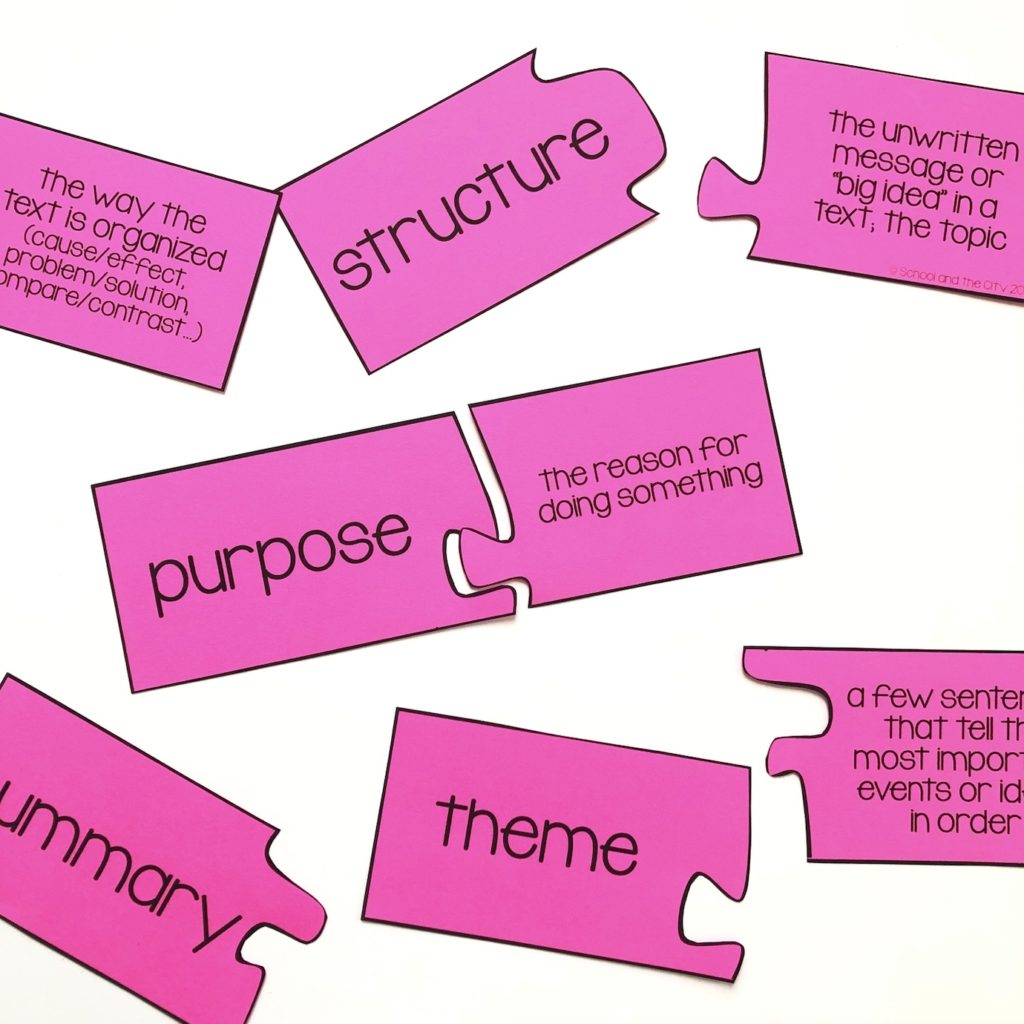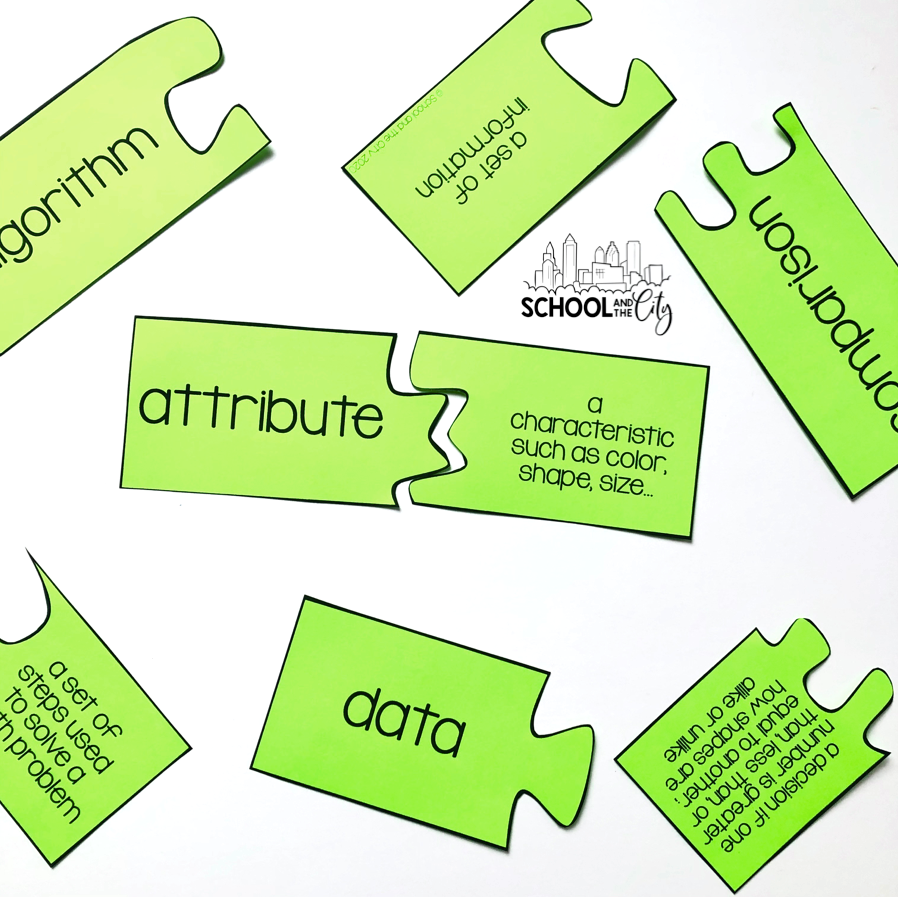What is academic vocabulary?
Think: All of those words students may encounter on assessments. I typically consider academic vocabulary to be verbs, like infer, analyze, compare, summarize, and so on.
I went to a professional development one time with an amazing speaker who said something that I will never forget. She said:
“Vocabulary should be a hurdle for students, not a roadblock.”
Ever since then, I’ve tried to be extra intentional about providing my students with daily exposure to such terms so that they can become familiar with using them in daily conversations.
Although this seemed to help, I felt that my students needed a tangible resource to practice with – especially for those visual and kinesthetic learners.
So, I made puzzles! What’s not to love?

There are three types of puzzles:
Let’s help our students master high-level academic language so that they can truly show what they know when it comes to standardized testing without being thrown off by some tricky vocabulary words.

HOW CAN I USE THEM?
- small group direct instruction
- math centers
- early finishers
- morning work options

WILL THEY WORK FOR ME?
- Each puzzle piece only has one possible match which allows students to self-monitor.
- Print more than one set – each on a different color of paper – so that you have plenty to go around.
- You can have your students partner up to build confidence and add support if needed.
- Print on cardstock and laminate – They will last for years!
Creating puzzle sets is just one way to expose your students to vocabulary in a fun way. Of course, these terms should be used in context whenever applicable during instruction, instead of solely in isolation. The puzzles are a resource for practice, but aren’t enough to help students learn to understand them in context.
How do you support your students’ vocabulary growth? Share with the class and let us know in the comments!
You May Also Like:

